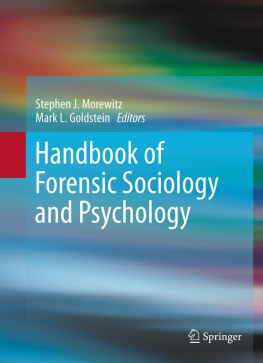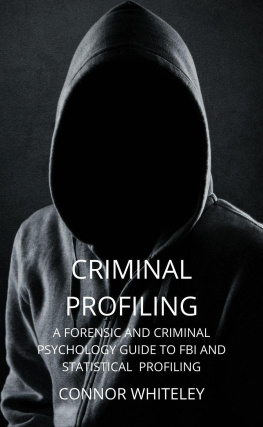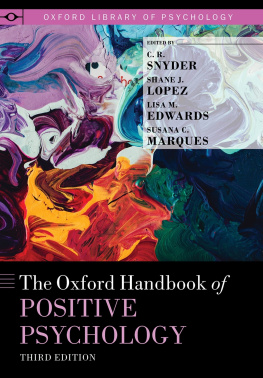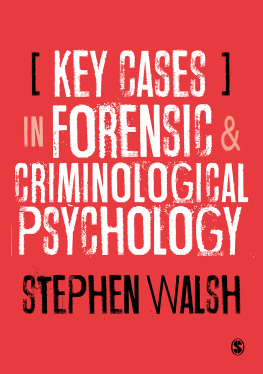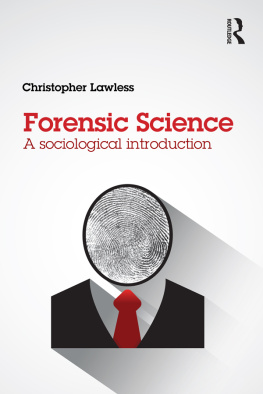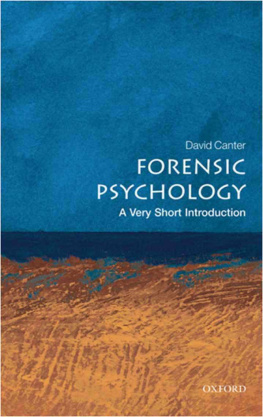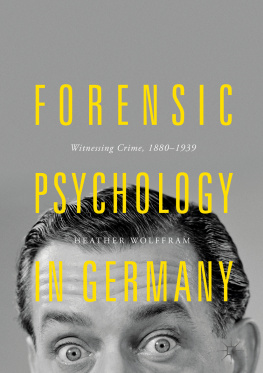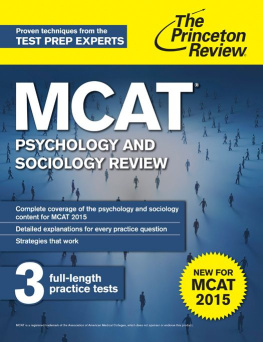Stephen J. Morewitz and Mark L. Goldstein (eds.) Handbook of Forensic Sociology and Psychology 2014 10.1007/978-1-4614-7178-3_1 Springer Science+Business Media New York 2014
1. Evolving Practice Parameters of Forensic Criminology
Abstract
In recent years, sociologists and criminologists have begun to play a significant role as expert witnesses in civil lawsuits involving the actions of security, police, and corrections personnel. As liability experts in negligent security litigation, forensic criminologists increasingly opine on crime foreseeability, professional security standards of care, and issues of proximate cause. Social framework testimony is also introduced to provide fact finders with current social scientific thinking on the specific issues pertinent to tort litigation. Administrative negligence in the form of negligent hiring, negligent training, negligent supervision, and other managerial errors has also drawn the attention of forensic criminologists. Additionally, public criminal justice officials have been sued over use-of-force incidents, miscarriage of justice, suicide by cop, allegations of prejudicial profiling, jail suicides, prisoner health care, and conditions of confinement. Forensic criminology contributes considerable substantive knowledge on these topics which should help judge and jury resolve the issues at bar.
As is probably true for many of us in the workplace, my career has not turned out quite as I envisioned it would some 40 years ago. More specifically, as a beginning graduate student in sociology, I had no idea I would eventually practice forensic criminology or be in a position to write about what follows. In fact, I had never heard of forensic criminology (FC) until years later and, I believe, neither had my academic colleagues. It was only after I began to practice as a forensic criminologist and to identify myself as one that the parameters of this fascinating area of expertise began to reveal themselves more fully to me.
In the early 1980s I was serving as an assistant professor of criminal justice at the University of Detroit. While listening to the radio en route to work one day, I heard a news story about a suicide in the Wayne County Jail. Given my publish or perish mode at the time, I decided to study this inmates suicide and learned, much to my surprise, that a custody suicide can be quite difficult to predict or prevent. After developing a rudimentary theory to explain certain custody suicides, I published an article in a widely read police journal (Kennedy, ) then continued about my standard academic business. Not long after the article was published, an attorney involved in litigation generated by a students death in a university police departments lockup contacted me. I consulted on that case and then another. Meanwhile, a colleague at Michigan State University who had written about police pursuit collisions was also contacted by various attorneys. Eventually, both of us fielded inquiries about crimes committed on business premises, at educational institutions, in apartment complexes, and at a variety of other property types. I was able to field these inquiries because I had developed a course sequence in private security in order to attract students to replace those lost when the federal LEEP program ceased paying for the tuition of police and correction officers. As time went on, I immersed myself further in the security literature and the publications of the American Society for Industrial Security. The knowledge thus accumulated was to prove extremely helpful in my newfound forensic career.
In a most serendipitous fashion, then, I had stumbled into the litigation explosion (Olson, ), police officials, corrections officials, and their employers could be held responsible for negligent action or inaction. Just as importantly, however, they were to be exonerated when appropriate.
None of this chronology should be taken to imply that I discovered the practice of FC. True pioneers in this field would include Hans Gross at the turn of the twentieth century (Turvey, ).
What I chronicle here in a broader sense is the entry of the social sciences into the courtroom. Ever since a young Louis Brandeis pleaded the now famous Brandeis Brief discussing the sociological impact of females in the labor pool, more and more of the human sciences now help clarify issues before judge and jury (Monahan & Walker, ). Given that much of American criminology is deeply rooted in sociology, discussions of FS and FC are sometimes somewhat fungible in nature.
Definitions and Domains
When most people encounter the words forensic criminologist, an image of CSIs Gill Grissom probably springs to mind. On many occasions, I have been treated to comments about blood splatter, ballistics, trace evidence, and the wonders of DNA when conversation partners learn that I am a forensic criminologist. Although I believe a forensic criminologist should know about these things as well as several other issues to be determined at a crime scene, criminology is not criminalistics. Nor is it what most people think of when they think about forensic science.
The word forensic is derived from the Latin word forum, which was a place where public issues were debated (Siegel, ). Several of the topics central to forensic psychology are of great interest to forensic criminologists as well (e.g., false confessions, criminal profiling, psychopathic criminals, suicide in custody, police behavior). On the other hand, while criminologists do not generally administer personality tests or evaluate a subjects capacity to form mens rea , psychologists do not normally compute crime rates or assess the criminogenic nature of urban neighborhoods.
FC is the application of criminological knowledge to issues before the courts. It includes within its scope the scientific study of the making of law, the breaking of law, and societal reactions to the breaking of law (Sutherland & Cressey, ). These issues may also be explored on various theoretical levels as in academic criminology or on a more practical level which may become an applied criminology. If presented in court or at deposition, we are now putting forth a FC. For the purposes of this chapter, then, criminology is the scientific study of the etiology, patterns, and control of crime and criminals. Whenever this type of information becomes useful to judicial or jury decision making, we are then describing FC.
As a multidisciplinary field of study as well as a professional practice, FC is pertinent to both criminal and civil courts. Owing to differences between criminal and civil law, insofar as parties, proofs, and penalties are concerned (Abadinsky, ). The criminologists role is to present evidence relevant to his or her expertise in a dispassionate and objective manner and not to advocate for a given verdict. Forensic criminologists must fully understand they are but guests at a trial. While criminologists may dominate a classroom, the courtroom is run by the judge and the lawyers arguing therein.
Forensic criminologists can make numerous contributions to criminal matters before the court. They can prepare presentence investigations to balance those prepared by state-employed probation officers (Kulis, ). These topics constitute simply a small sampling rather than the universe of criminological knowledge available to the courts in their efforts to render criminal justice. Fuller elaboration of the parameters of criminal FC must await another chapter. Given the nature of my forensic involvement over the past 25 years, however, I shall delve more deeply into civil FC for the remainder of this chapter.

